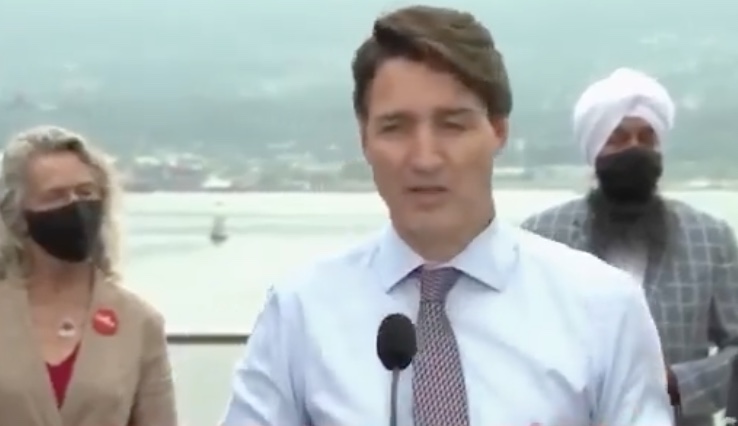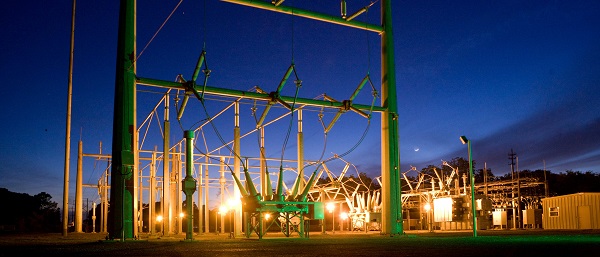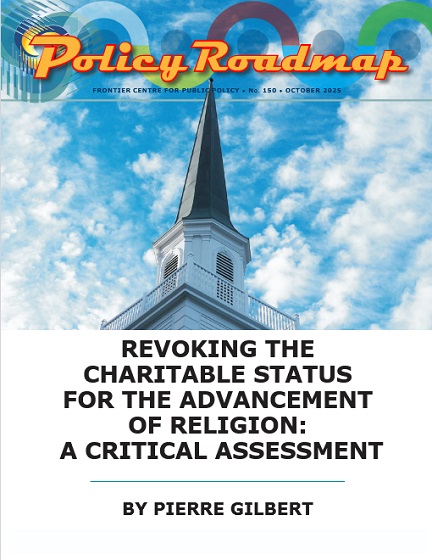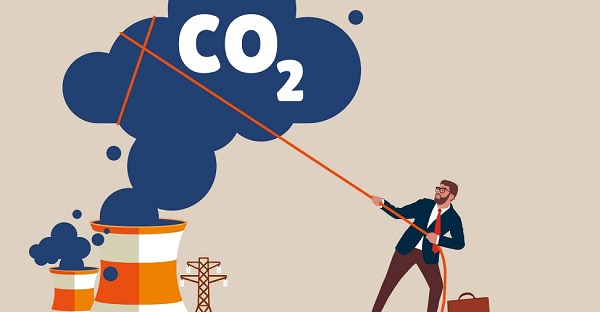Opinion
PM Trudeau’s “Monetary Policy” gaffe could cost the Liberals the election. But will it?

Back in 1993 things were not going well for Canada’s Progressive Conservative Government. Brian Mulroney’s government had served 2 mandates and Canadians were clearly ready to move on. The Conservatives decided Kim Campbell would be the best leader to bring a renewed excitement to their reelection hopes. Campbell was a fresh face and that was important to the party which was losing support quickly. She was also from Vancouver, which was a nice change for the party normally represented by leaders from Ontario or Quebec. Even more importantly, when she won the leadership she would become the first female leader of a country in North America. As Canadians would discover just a few months later though, no one cared about any of that. That campaign did not go well. The Conservatives not only lost. They were decimated right out of official party standing. The governing party won just 2 seats in the entire nation (Jean Charest in Quebec, and Elsie Wayne in New Brunswick). Kim Campbell did not even win her own seat. Henceforth the Reform Party represented the Conservative voice for the next two elections.
For one reason or another, Canadians simply did not connect with Kim Campbell. One of the biggest gaffes of that election campaign came when a reporter pressed Campbell for details on an issue and she replied “The election is not a time to discuss serious issues.” That was the wrong answer. Despite what she may have truly meant, all Canadians heard was “I don’t need to explain anything to you.”. That was exactly the wrong thing to say at the worst possible time.

Why bring this up now, 28 years later? Well Prime Minister Justin Trudeau has made his first major gaffe of this election campaign. And for those who care about monetary policy (which should be everyone who pays taxes and works or has savings, etc) it’s very likely as stunning a statement as Kim Campbell made three decades ago.
First some background. In 2021, Canadians find themselves in an astounding situation. When the covid pandemic hit last year governments all over the world shut down their economies for weeks, and then months. Government stimulus was the order of the day and Canada’s was among the most generous in the world. People were paid to stay at home. Businesses were paid to continue to provide jobs to people working from home. Landlords were paid to keep tenants afloat. All in all, government money is being spent at unprecedented rates.
To pay for all this the Trudeau government attempted to pass a bill through Parliament which would allow it to raise taxes at will without a budget and without even coming back to ask Parliament to present a plan or ask for approval. That didn’t go over so well. But instead of turning back the taps, or introducing a budget with higher taxes the government worked out a plan with the Bank of Canada. How this works basically is that every month the Bank of Canada prints out a few billion dollars, and the government uses that to pay for all the stimulus they want. Over the first year of covid that totalled about 350 Billion dollars!
The Bank of Canada has left the core function expressed in its mandate in order to print all this extra money. Despite it’s best efforts to decouple inflation from the printing of extra money, it’s not working. Canada’s inflation rate has been blowing through the target of 2% month after month after month.
This is the the mandate as expressed by the Bank of Canada itself on its website.
The Bank of Canada is the nation’s central bank. Its mandate, as defined in the Bank of Canada Act, is “to promote the economic and financial welfare of Canada.” The Bank’s vision is to be a leading central bank—dynamic, engaged and trusted—committed to a better Canada.
The Bank has four core functions:
- Monetary policy: The Bank’s monetary policy framework aims to keep inflation low, stable and predictable.
- Financial system: The Bank promotes safe, sound and efficient financial systems within Canada and internationally.
- Currency: The Bank designs, issues and distributes Canada’s bank notes.
- Funds management: The Bank acts as fiscal agent for the Government of Canada, managing its public debt programs and foreign exchange reserves.
The Bank of Canada’s mandate is expiring at the end of this year and the new mandate could change. Some are saying the Bank should continue to print money at an unprecedented rate and Canadians will learn to live with high inflation. Considering this drives up the cost of everything from our homes and vehicles, to the food we eat there could hardly be a more important issue. That’s why PM Trudeau’s response to this question in Vancouver this week is so stunning. When asked if he would consider a higher tolerance for inflation going forward here’s what he said.
Reporter Question about the renewal of the Bank of Canada mandate due at the end of 2021:
-Do you have thoughts about that mandate? Would you consider a slightly higher tolerance for inflation?
Prime Minister Justin Trudeau: “When I think about the biggest, most important economic policy this government, if re-elected, would move forward, you’ll forgive me if I don’t think about monetary policy.”
Of course this spurred an immediate reaction from the opposition Conservatives. That oppostion is perhaps best summed up in this address from Pierre Poilievre.
The question is, will Canadians punish Prime Minister Trudeau for either lacking basic economic knowledge, or not caring about it? Kim Campbell failed to win her own seat, but she did not seem to connect well with Canadians at all even before that election campaign. Justin Trudeau has so far been immune to gaffes. Even though he’s had more than 5 years in government, millions of Canadians stand by him loyally. Will this time be any different?
National
Democracy Watch Renews Push for Independent Prosecutor in SNC-Lavalin Case

Group says Ontario Crown used “clearly incorrect” legal test to shield Trudeau from private prosecution, calls for independent process free of political ties
Democracy Watch has launched a fresh bid to reopen the door to prosecuting former Prime Minister Justin Trudeau over his alleged role in the 2018 SNC-Lavalin affair, accusing Ontario Crown Counsel of using a legally flawed standard to shut down its private prosecution and continuing what it calls “a smelly cover-up” that began under the Trudeau government.
Read the full press release here
In a new letter sent Wednesday to Ontario Attorney General Doug Downey and Randy Schwartz, the province’s Assistant Deputy Attorney General for Criminal Law, the non-partisan watchdog group is again calling for an independent special prosecutor to review evidence that Trudeau obstructed justice and breached public trust by pressuring then–Attorney General Jody Wilson-Raybould to intervene in the SNC-Lavalin prosecution seven years ago.
This latest appeal comes after Ontario’s Director of the Complex Prosecutions Bureau, John Corelli, used his authority in September to halt Democracy Watch’s private prosecution before it reached a preliminary “pre-enquête” hearing. In that letter, Corelli said there was “no reasonable prospect the Crown could prove that Mr. Trudeau acted with the requisite criminal intent.”
Democracy Watch disputes that reasoning, arguing it misstates the law.
“Crown prosecutors stopping this prosecution for a legally incorrect reason, just like the RCMP did in addition to suppressing key evidence, amounts to a smelly cover-up,” said Duff Conacher, the group’s co-founder and legal expert. “It shows clearly that Canada does not have independent, effective anti-corruption law enforcement and, as a result, corruption in the highest public offices across the country is effectively legal.”
The group’s new letter marks the second time it has asked Ontario’s Attorney General to intervene. In its first request in March, Democracy Watch urged Downey to establish a non-partisan selection committee to appoint a special prosecutor. Downey’s office declined that request in May.
Now, the group is reiterating the demand, saying the independent prosecutor should be chosen by a committee composed of people with no party ties, working alongside opposition leaders, to ensure public confidence in the process.
Conacher’s team argues that Corelli’s reasoning — that the Crown cannot prove Trudeau acted with “criminal intent” — applies the wrong legal test. In its filings, Democracy Watch cites the Supreme Court of Canada’s decision in R. v. Beaudry (2007), which clarified that obstruction of justice requires only that an act be done “willfully” to frustrate the course of justice — not that it be done with corrupt or deceitful intent.
“The Supreme Court has already set the threshold,” Conacher said. “Proof of ‘criminal’ intent isn’t required. It’s enough that someone acted willfully to obstruct the process. That’s what the Crown ignored.”
The group also says that the case against Trudeau is unprecedented and cannot be dismissed out of hand without judicial review. It accuses the RCMP of conducting a “negligently weak and incomplete investigation” that left key questions unanswered and accepted the government’s refusal to release Cabinet records from the time.
Democracy Watch’s original filing included testimony and documents obtained from the RCMP after a two-year access battle. It alleges that the Mounties failed to interview key witnesses, including Wilson-Raybould’s chief of staff Jessica Prince and former Liberal minister Jane Philpott, and withheld portions of their answers in documents finally disclosed. The proposed pre-enquête hearing — which Corelli stopped — would have allowed those witnesses to testify under oath and allowed a judge to decide if the evidence was sufficient to proceed.
The group’s case was supported by Wayne Crookes, founder of Integrity B.C., and represented by Jen Danch of Swadron Associates law firm.
Conacher is now urging Ontario’s Attorney General to “do the right thing” and reverse course.
“Canadians can only hope Ontario’s Attorney General will work with opposition party leaders to establish a fully independent committee that will choose a fully independent special prosecutor to review the evidence,” Conacher said.
He also renewed his call for structural reform of Canada’s anti-corruption enforcement, noting that Quebec’s independent anti-corruption police and prosecution units (UPAC) have operated since 2011, while the RCMP remains under the direct control of Cabinet appointees.
“The RCMP lacks independence from the Prime Minister and Cabinet ministers who handpick its leadership,” Conacher said. “They serve at the pleasure of the government, so they are vulnerable to political interference. To ensure integrity, Canada needs a fully independent anti-corruption police force and independent prosecutors.”
Democracy Watch’s campaign underscores a broader concern that the Trudeau-era SNC-Lavalin controversy, which saw Wilson-Raybould’s resignation, Philpott’s exit, and an Ethics Commissioner finding of improper political pressure, has never been subjected to a full criminal review.
For Conacher, the issue is bigger than one case. It’s about restoring the principle that no one, not even a Prime Minister, stands above the law.
Subscribe to The Opposition with Dan Knight .
For the full experience, upgrade your subscription.
Business
Over two thirds of Canadians say Ottawa should reduce size of federal bureaucracy

From the Fraser Institute
By Matthew Lau
From 2015 to 2024, headcount at Natural Resources Canada increased 39 per cent even though employment in Canada’s natural resources sector actually fell one per cent. Similarly, there was 382 per cent headcount growth at the federal department for Women and Gender Equality—obviously far higher than the actual growth in Canada’s female population.
According to a recent poll, there’s widespread support among Canadians for reducing the size of the federal bureaucracy. The support extends across the political spectrum. Among the political right, 82.8 per cent agree to reduce the federal bureaucracy compared to only 5.8 per cent who disagree (with the balance neither agreeing nor disagreeing); among political moderates 68.4 per cent agree and only 10.0 per cent disagree; and among the political left 44.8 per cent agree and 26.3 per cent disagree.
Taken together, “67 per cent agreed the federal bureaucracy should be significantly reduced. Only 12 per cent disagreed.” These results shouldn’t be surprising. The federal bureaucracy is ripe for cuts. From 2015 to 2024, the federal government added more than 110,000 new bureaucrats, a 43 per cent increase, which was nearly triple the rate of population growth.
This bureaucratic expansion was totally unjustified. From 2015 to 2024, headcount at Natural Resources Canada increased 39 per cent even though employment in Canada’s natural resources sector actually fell one per cent. Similarly, there was 382 per cent headcount growth at the federal department for Women and Gender Equality—obviously far higher than the actual growth in Canada’s female population. And there are many similar examples.
While in 2025 the number of federal public service jobs fell by three per cent, the cost of the federal bureaucracy actually increased as the number of fulltime equivalents, which accounts for whether those jobs were fulltime or part-time, went up. With the tax burden created by the federal bureaucracy rising so significantly in the past decade, it’s no wonder Canadians overwhelmingly support its reduction.
Another interesting poll result: “While 42 per cent of those surveyed supported the government using artificial intelligence tools to resolve bottlenecks in service delivery, 32 per cent opposed it, with 25 per cent on the fence.” The authors of the poll say the “plurality in favour is surprising, given the novelty of the technology.”
Yet if 67 per cent of Canadians agree with significantly shrinking the federal bureaucracy, then solid support for using AI to increasing efficiency should not be too surprising, even if the technology is relatively new. Separate research finds 58 per cent of Canadian workers say they use AI tools provided by their workplace, and although many of them do not necessarily use AI regularly, of those who report using AI the majority say it improves their productivity.
In fact, there’s massive potential for the government to leverage AI to increase efficiency and control labour expenses. According to a recent study by a think-tank at Toronto Metropolitan University (formerly known as Ryerson), while the federal public service and the overall Canadian workforce are similar in terms of the percentage of roles that could be made more productive by AI, federal employees were twice as likely (58 per cent versus 29 per cent) to have jobs “comprised of tasks that are more likely to be substituted or replaced” by AI.
The opportunity to improve public service efficiency and deliver massive savings to taxpayers is clearly there. However, whether the Carney government will take advantage of this opportunity is questionable. Unlike private businesses, which must continuously innovate and improve operational efficiency to compete in a free market, federal bureaucracies face no competition. As a result, there’s little pressure or incentive to reduce costs and increase efficiency, whether through AI or other process or organizational improvements.
In its upcoming budget and beyond, it would be a shame if the federal government does not, through AI or other changes, restrain the cost of its workforce. Taxpayers deserve, and clearly demand, a break from this ever-increasing burden.
-

 Alberta2 days ago
Alberta2 days agoFact, fiction, and the pipeline that’s paying Canada’s rent
-

 Business2 days ago
Business2 days agoFinance Titans May Have Found Trojan Horse For ‘Climate Mandates’
-

 Energy1 day ago
Energy1 day agoIndigenous Communities Support Pipelines, Why No One Talks About That
-

 International2 days ago
International2 days agoSigned and sealed: Peace in the Middle East
-

 Alberta1 day ago
Alberta1 day agoOil Sands are the Costco of world energy – dependable and you know exactly where to find it
-

 Business1 day ago
Business1 day agoFinance Committee Recommendation To Revoke Charitable Status For Religion Short Sighted And Destructive
-

 International1 day ago
International1 day agoNumber of young people identifying as ‘transgender’ declines sharply: report
-

 Alberta1 day ago
Alberta1 day agoThe Technical Pitfalls and Political Perils of “Decarbonized” Oil








